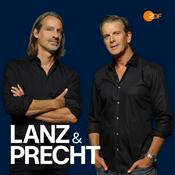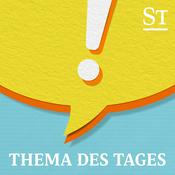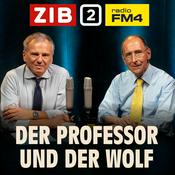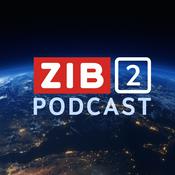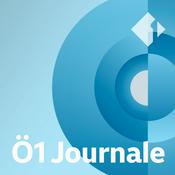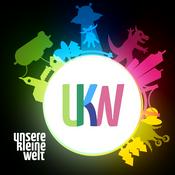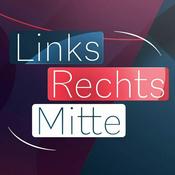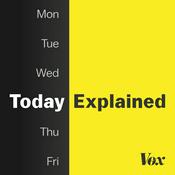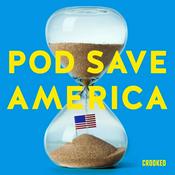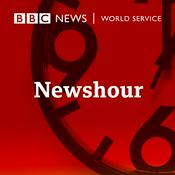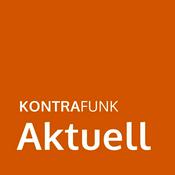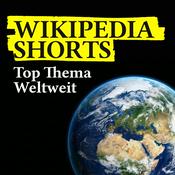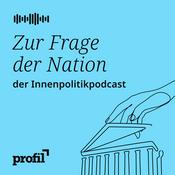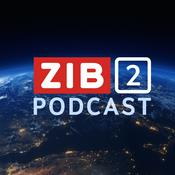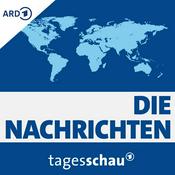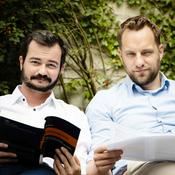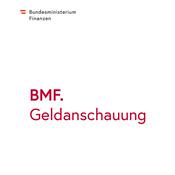1047 Episoden

Jordan Frith, "Barcode" (Bloomsbury, 2023)
31.12.2025 | 1 Std. 17 Min.
Barcodes are about as ordinary as an object can be. Billions of them are scanned each day and they impact everything from how we shop to how we travel to how the global economy is managed. But few people likely give them more than a second thought. In a way, the barcode's ordinariness is the ultimate symbol of its success. However, behind the mundanity of the barcode lies an important history. Barcodes bridged the gap between physical objects and digital databases and paved the way for the contemporary Internet of Things, the idea to connect all devices to the web. They were highly controversial at points, protested by consumer groups and labor unions, and used as a symbol of dystopian capitalism and surveillance in science fiction and art installations. Jordan Frith's book Barcode (Bloomsbury, 2023) tells the story of the barcode's complicated history and examines how an object so crucial to so many parts of our lives became more ignored and more ordinary as it spread throughout the world. This interview was conducted by Dr. Miranda Melcher whose forthcoming book focuses on post-conflict military integration, understanding treaty negotiation and implementation in civil war contexts, with qualitative analysis of the Angolan and Mozambican civil wars. Learn more about your ad choices. Visit megaphone.fm/adchoices Support our show by becoming a premium member! https://newbooksnetwork.supportingcast.fm/technology

Donna J. Drucker, "Fertility Technology" (MIT Press, 2023)
29.12.2025 | 30 Min.
A concise overview of fertility technology—its history, practical applications, and ethical and social implications around the world. In the late 1850s, a physician in New York City used a syringe and glass tube to inject half a drop of sperm into a woman’s uterus, marking the first recorded instance of artificial insemination. From that day forward, doctors and scientists have turned to technology in ever more innovative ways to facilitate conception. Fertility Technology (MIT Press, 2023) surveys this history in all its medical, practical, and ethical complexity, and offers a look at state-of-the-art fertility technology in various social and political contexts around the world. Donna J. Drucker’s concise and eminently readable account introduces the five principal types of fertility technologies used in human reproduction—artificial insemination; ovulation timing; sperm, egg, and embryo freezing; in vitro fertilization; and IVF in uterine transplants—discussing the development, manufacture, dispersion, and use of each. Geographically, it focuses on countries where innovations have emerged and countries where these technologies most profoundly affect individuals and population policies. Drucker’s wide-ranging perspective reveals how these technologies, used for birth control as well as conception in many cases, have been critical in shaping the moral, practical, and political meaning of human life, kinship, and family in different nations and cultures since the mid-nineteenth century. Donna J. Drucker is Assistant Director of Scholarship and Research Development at the Columbia University School of Nursing. Caleb Zakarin is the Assistant Editor of the New Books Network. Learn more about your ad choices. Visit megaphone.fm/adchoices Support our show by becoming a premium member! https://newbooksnetwork.supportingcast.fm/technology

Jeremy Black, "A History of Artillery" (Rowman & Littlefield, 2023)
29.12.2025 | 38 Min.
Jeremy Black's book A History of Artillery (Rowman & Littlefield, 2023) traces the development of artillery through the ages, providing a thorough study of these weapons. From its earliest recorded use in battle over a millennium ago, up to the recent Gulf War, Balkan, and Afghanistan conflicts, artillery has often been the deciding factor in battle. Black shows that artillery sits within the general history of a war as a means that varied greatly between armies and navies, and also across time. Charles Coutinho, PH. D., Associate Fellow of the Royal Historical Society, received his doctorate from New York University. His area of specialization is 19th and 20th-century European, American diplomatic and political history. He has written for Chatham House’s International Affairs, the Institute of Historical Research's Reviews in History and the University of Rouen's online periodical Cercles. Learn more about your ad choices. Visit megaphone.fm/adchoices Support our show by becoming a premium member! https://newbooksnetwork.supportingcast.fm/technology

Luis Felipe Murillo, "Common Circuits: Hacking Alternative Technological Futures" (Stanford UP, 2025)
17.12.2025 | 41 Min.
A digital world in relentless movement—from artificial intelligence to ubiquitous computing—has been captured and reinvented as a monoculture by Silicon Valley "big tech" and venture capital firms. Yet very little is discussed in the public sphere about existing alternatives. Based on long-term field research across San Francisco, Tokyo, and Shenzhen, Common Circuits: Hacking Alternative Technological Futures (Stanford UP, 2025) explores a transnational network of hacker spaces that stand as potent, but often invisible, alternatives to the dominant technology industry. In what ways have hackers challenged corporate projects of digital development? How do hacker collectives prefigure more just technological futures through community projects? Luis Felipe R. Murillo responds to these urgent questions with an analysis of the hard challenges of collaborative, autonomous community-making through technical objects conceived by hackers as convivial, shared technologies. Through rich explorations of hacker space histories and biographical sketches of hackers who participate in them, Murillo describes the social and technical conditions that allowed for the creation of community projects such as anonymity and privacy networks to counter mass surveillance; community-made monitoring devices to measure radioactive contamination; and small-scale open hardware fabrication for the purposes of technological autonomy. Murillo shows how hacker collectives point us toward brighter technological futures—a renewal of the "digital commons"—where computing projects are constantly being repurposed for the common good. Mentioned in this episode: "Political Software: Mapping Digital Worlds from Below" Project Website here Luis Felipe R. Murillo is Assistant Professor of Anthropology and Faculty Fellow at the Notre Dame Technology Ethics Center at the University of Notre Dame. His work is dedicated to the study of computing from an anthropological perspective. Liliana Gil is Assistant Professor of Comparative Studies (STS) at The Ohio State University. Learn more about your ad choices. Visit megaphone.fm/adchoices Support our show by becoming a premium member! https://newbooksnetwork.supportingcast.fm/technology

Chaim Gingold, "Building SimCity: How to Put the World in a Machine" (MIT Press, 2024)
15.12.2025 | 20 Min.
Building SimCity explores the history of computer simulation by chronicling one of the most influential simulation games ever made: SimCity. As author Chaim Gingold explains, Will Wright, the visionary designer behind the urban planning game, created SimCity in part to learn about cities, appropriating ideas from traditions in which computers are used as tools for modeling and thinking about the world as a complex system. As such, SimCity is a microcosm of the histories and cultures of computer simulation that engages with questions, themes, and representational techniques that reach back to the earliest computer simulations. Gingold uses SimCity to explore a web of interrelated topics in the history of technology, software, and simulation, taking us far and wide—from the dawn of programmable computers to miniature cities made of construction paper and role-play. An unprecedented history of Maxis, the company founded to bring SimCity to market, the book reveals Maxis’s complex relations with venture capitalists, Nintendo, and the Santa Fe Institute, which shaped the evolution of Will Wright’s career; Maxis’s failure to back The Sims to completion; and the company’s sale to Electronic Arts. Building SimCity boasts a treasure trove of visual matter to help bring its wide-ranging subjects to life, including painstakingly crafted diagrams that explain SimCity’s operation, the Kodachrome photographs taken by Charles Eames of schoolchildren making model cities, and Nintendo’s manga-style “Dr. Wright” character design, just to name a few. Rudolf Thomas Inderst (*1978) enjoys video games since 1985. He received a master’s degree in political science, American cultural studies as well as contemporary and recent history from Ludwig-Maximilians-University, Munich and holds two PhDs in game studies (LMU & University of Passau). Currently, he's teaching as a professor for game design and game studies at the HNU University of Applied Sciences Neu-Ulm, Germany, has submitted his third dissertation at the University of Vechta, holds the position as lead editor at the online journal TITEL kulturmagazin for the game section, hosts the German local radio show Replay Value and is editor of the weekly game research newsletter Game Studies Watchlist. Learn more about your ad choices. Visit megaphone.fm/adchoices Support our show by becoming a premium member! https://newbooksnetwork.supportingcast.fm/technology
Weitere Nachrichten Podcasts
Trending Nachrichten Podcasts
Über New Books in Technology
Höre New Books in Technology, The Daily und viele andere Podcasts aus aller Welt mit der radio.at-App
Hol dir die kostenlose radio.at App
- Sender und Podcasts favorisieren
- Streamen via Wifi oder Bluetooth
- Unterstützt Carplay & Android Auto
- viele weitere App Funktionen
Hol dir die kostenlose radio.at App
- Sender und Podcasts favorisieren
- Streamen via Wifi oder Bluetooth
- Unterstützt Carplay & Android Auto
- viele weitere App Funktionen

New Books in Technology
App laden,
loshören.



